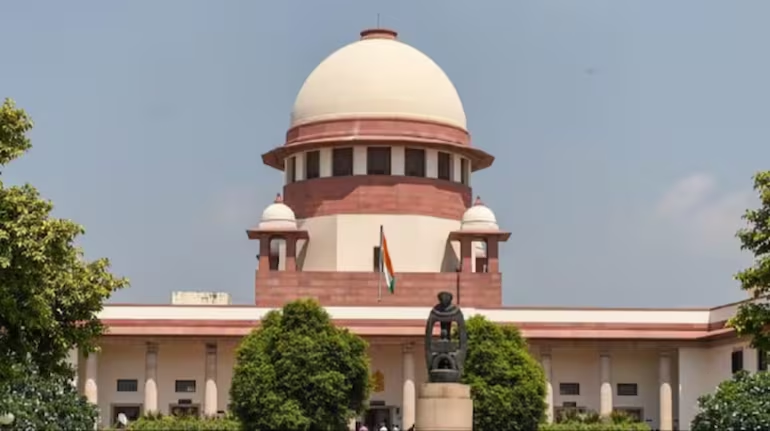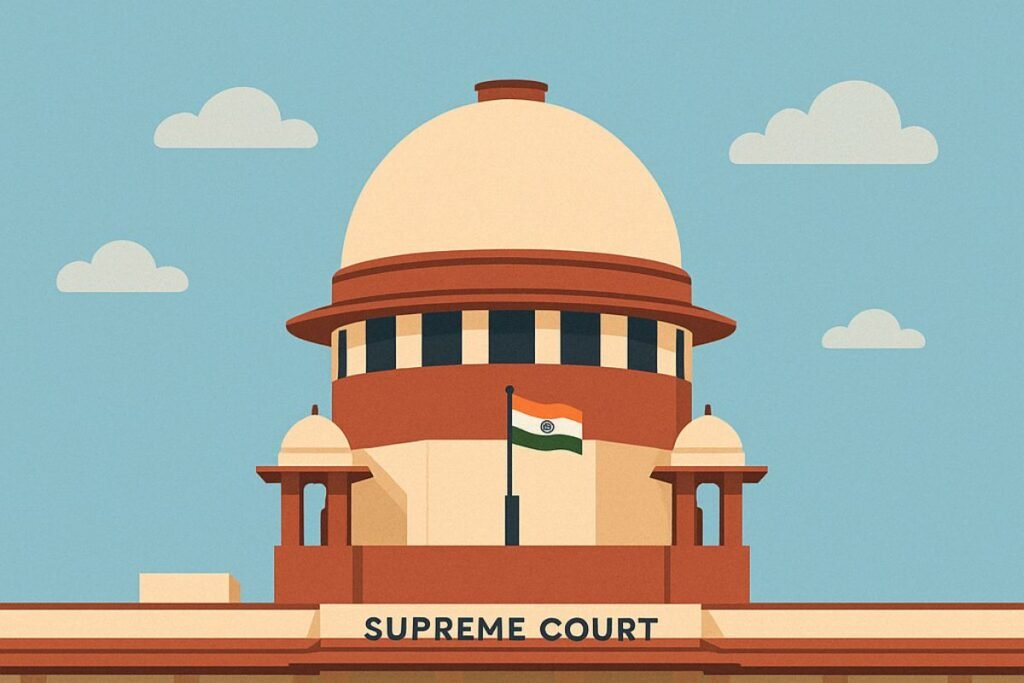
CLAT 2025 Supreme Court Transfer all Petitions Challenging Exam Results to Delhi High Court
Overview of the Issue
- The Common Law Admission Test (CLAT) 2025 was conducted in December 2024 for UG and PG admissions into National Law Universities (NLUs) across India.
- Following the declaration of results, numerous petitions were filed in various High Courts by candidates alleging errors in the examination paper and answer key.
- These legal challenges raised concerns over the fairness and accuracy of evaluation, with candidates claiming that specific questions contained demonstrable mistakes.
Supreme Court Intervention
- To prevent inconsistent rulings, the Supreme Court of India decided to transfer all such petitions from different High Courts to the Delhi High Court.
- The primary objective was to ensure “consistent adjudication” by consolidating all related cases before a single court.
- The order was passed by a Supreme Court bench comprising:
- Chief Justice of India Sanjiv Khanna
- Justice P.V. Sanjay Kumar
- Justice K.V. Viswanathan
Details of High Courts Involved
- Petitions related to CLAT 2025 discrepancies had been filed in multiple High Courts, including:
- Delhi High Court
- Rajasthan High Court
- Karnataka High Court
- Jharkhand High Court
- Bombay High Court
- Madhya Pradesh High Court
- Punjab and Haryana High Court
- All these cases were ordered to be transferred to Delhi High Court within 7 days, ensuring a streamlined judicial process.
Triggering Incident – Petition by Aditya (17-Year-Old Candidate)
- The controversy began with a petition by Aditya, a 17-year-old CLAT-UG 2025 aspirant.
- He highlighted errors in five questions of the CLAT UG exam.
- On December 20, 2024, Justice Jyoti Singh of the Delhi High Court acknowledged that at least two of the five questions were indeed erroneous.
- The judge ruled that ignoring these errors would amount to injustice and ordered a partial revision of the result based on these corrections.
Consortium’s and Aditya’s Response
- While Justice Singh’s verdict was partly in favor of the petitioner, both Aditya and the Consortium of NLUs were dissatisfied with the ruling:
- Aditya felt that more questions should have been acknowledged as incorrect.
- The Consortium challenged the directive to revise results, possibly concerned about precedent and logistical complications.
- Both parties escalated the matter to the Supreme Court, seeking clarity and finality.
Supreme Court’s Rationale for Transfer
- The Supreme Court emphasized that conflicting judgments across different High Courts on the same exam could create legal and academic uncertainty.
- Hence, all matters would be collectively heard on March 3 at the Delhi High Court.
- This consolidated approach aims to:
- Avoid duplication of judicial effort
- Prevent contradictory rulings
- Ensure timely resolution for thousands of aspirants
Impact on CLAT 2025 Candidates
- The outcome of these proceedings will have a direct impact on:
- Final rankings of students.
- Admission to various NLUs.
- Seat allotments and counselling process.
- It may set a precedent for future exam-related litigations, emphasizing legal remedies for evaluation discrepancies.
Conclusion for CLAT 2026 Aspirants
- This case is a practical example of the judiciary’s intervention in education policy and entrance exam governance.
- Important legal learnings include:
- The power of the Supreme Court to transfer and consolidate cases.
- The concept of judicial review over institutional errors.
- The rights of candidates to seek fairness in national entrance examinations.
- For CLAT 2026 aspirants, this case may be relevant to Legal Reasoning, Current Affairs, and even Constitutional Law topics related to education and public interest litigation.
Note
Powered by CLAT Gurukul — India’s Premier Law Entrance Coaching Institute
At CLAT Gurukul, we don’t just help you crack CLAT — we help you conquer it. This article is part of our mission to empower future legal professionals with relevant insights, in-depth analysis, and exam-oriented strategies that truly make a difference.
Why Thousands of Aspirants Trust CLAT Gurukul:
- Personalized mentorship by India’s top CLAT educators
- Comprehensive study material, updated daily
- Smart strategy sessions, mock tests, and performance analytics
- A proven track record of NLU selections year after year
Whether you’re a beginner or a repeater, you’re already one step ahead with CLAT Gurukul by your side.
Join our community of toppers. Visit www.clatgurukul.in or
connect with us on WhatsApp at +91-7033006444 for guidance and free counseling.
This Blog is Powered by CLAT Gurukul — India’s Leading Law Entrance Prep Platform
At CLAT Gurukul, we believe in empowering future legal minds with the right blend of knowledge, strategy, and mentorship. This blog is a reflection of our commitment to quality content that not only helps aspirants stay updated but also sharpens their conceptual clarity.
Why CLAT Gurukul?
- Personalized Mentorship by Top Legal Educators
- Comprehensive Study Materials & Legal Updates
- Daily Practice Sets, Mocks & Performance Tracking
- Result-Oriented Strategy for CLAT, AILET, and CUET
Whether you’re reading this article to deepen your understanding or to stay ahead in your exam prep — you’re already one step closer with CLAT Gurukul by your side.
Join thousands of successful aspirants who trusted CLAT Gurukul and cracked India’s top law entrance exams.
Visit www.clatgurukul.in to learn more or speak to our experts now!



